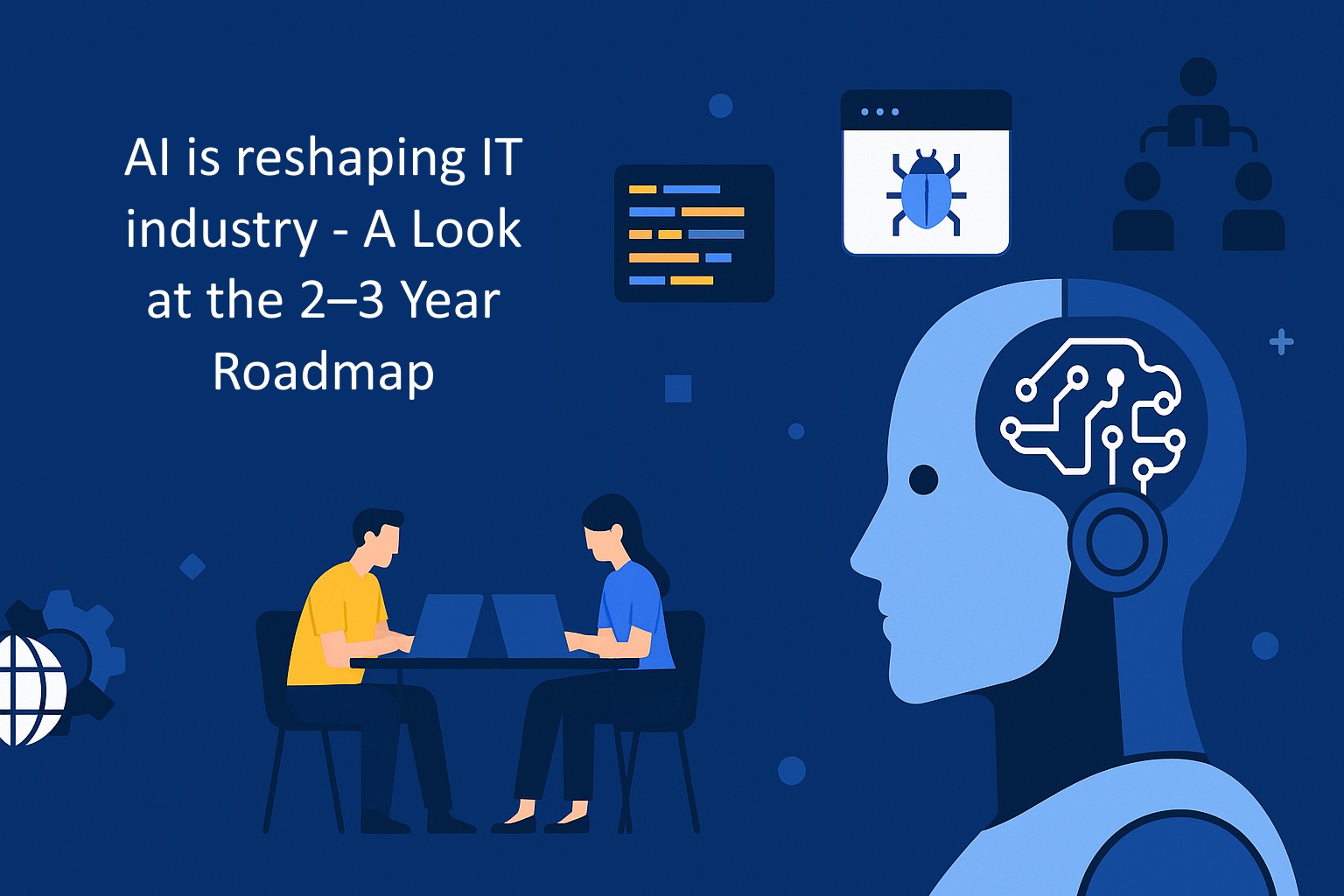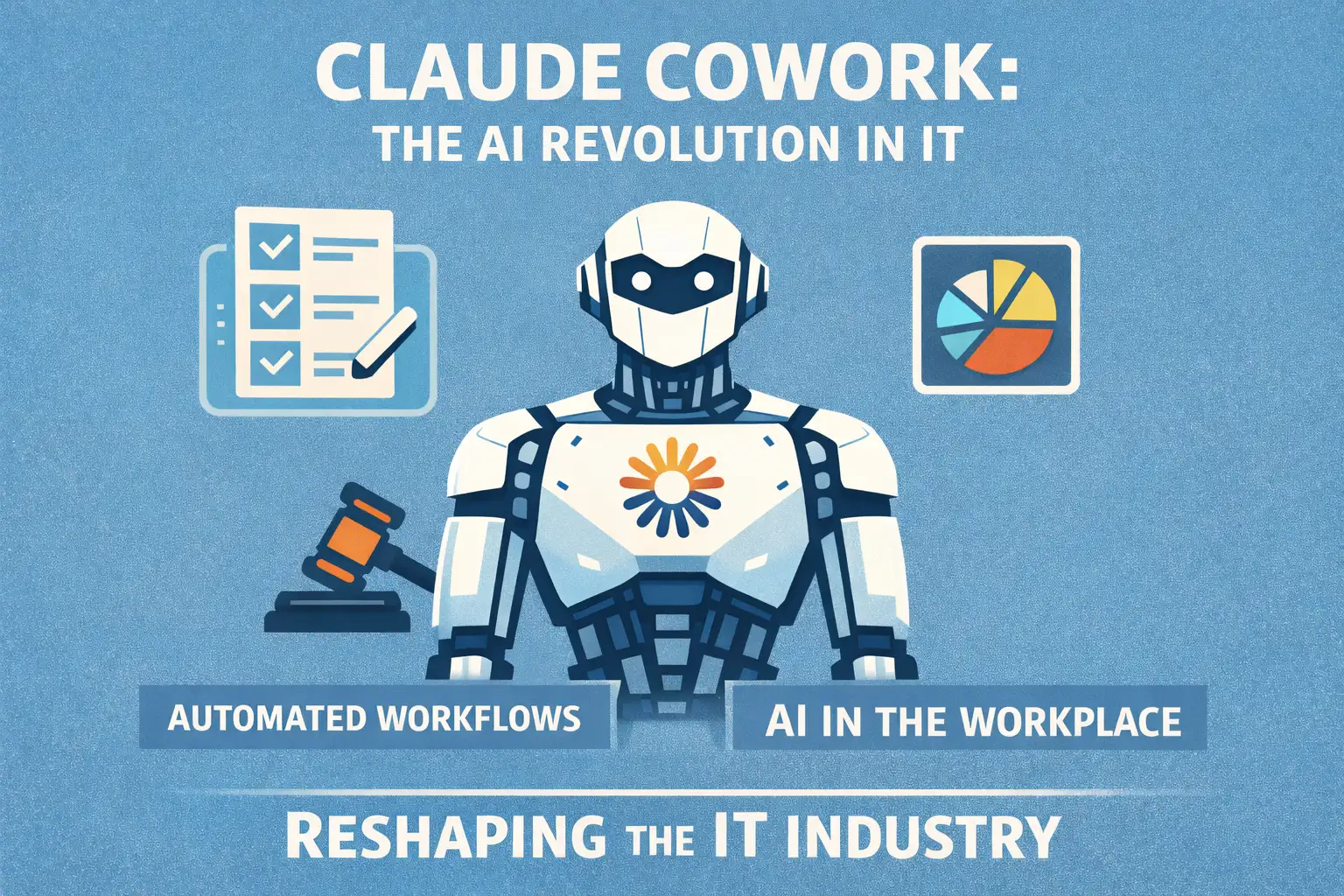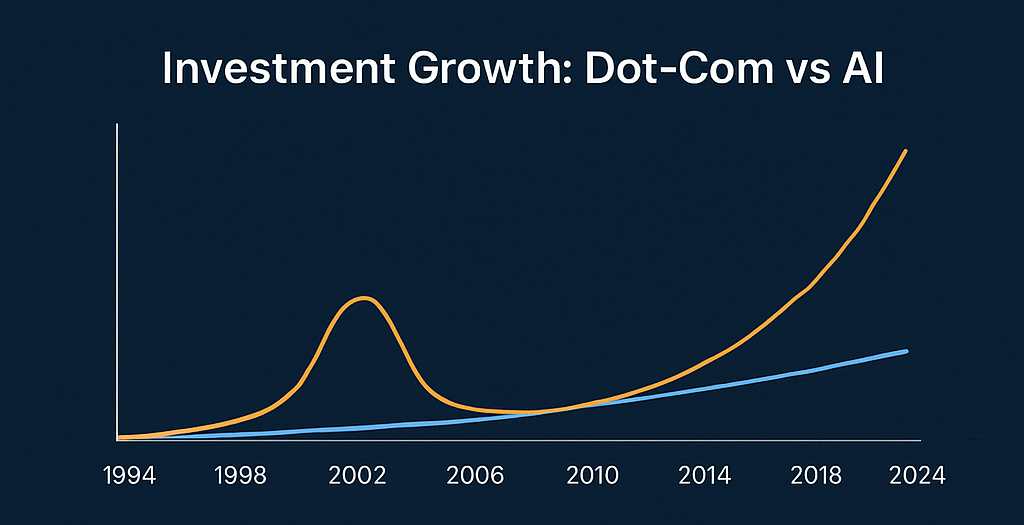The IT sector is about to change radically. The industry has changed over the past few decades from on-premise infrastructure to the cloud; now it is entering the age of artificial intelligence (AI). It is a structural change in how software is conceived, created, tested, and kept, not just a wave of automation.
AI will speed this transition over the next 2–3 years, fundamentally changing the talent demands, delivery methods, and business value streams of the sector.
The Present: Artificial intelligence as a productivity enhancer
Presently, artificial intelligence serves as a co-pilot helping developers, testers, and analysts in their work. Instruments such as GitHub Copilot and Amazon CodeWhisperer speed up developers’ coding.
- ChatGPT helps to create SQL queries, scripts, or even design ideas.
- Among other AI-based QA tools, Testim and Mabl automate and self-heal test cases.
- Jasper and Notion AI assist with the production of documentation, release notes, and knowledge articles.
Already assisting businesses finish projects with less resources and in less time are these instruments. But this is only the start.
The next two to three years will bring about what modifications?
1. AI-Native Development Environments
Most Integrated Development Environments (IDEs) will be AI-native by 2027, meaning:
- Less than 30% of code will be written by developers by hand; the other 70% will be auto-generated depending on prompts or patterns already in use.
- AI will immediately recommend reusable logic based on past commits and corporate databases.
- Big language models (LLMs) will let non-developers—like business analysts—create working prototypes utilizing natural language.
Effect: The obstacle for software development will be removed. Low-code/no-code builders and citizen developers will become essential components of delivery teams.
2. QA Teams Will Shrink but Develop Smartness
AI-powered test automation solutions will:
- Develop and sustain tests with little human involvement.
- Project possible failure points based on historical defects.
- Regularly verify user flows with synthetic data and production logs.
Impact: Jobs in manual QA will go drastically decreasing. Rather, hybrid roles such as Test Automation Engineers, AI QA Analysts, and Prompt QA Specialists will develop—targeted more on developing intelligent test plans than on executing test cases.
3. Smaller groups with greater impact
AI will serve as a force amplifier. Using artificial intelligence well, a five-member engineering team could beat a 20-member team operating manually. Expect:
- Agile pods with 3–5 members providing full-stack solutions.
- AI bots managing documents, surveillance, and low-level bug fixes.
- Managers of projects employing artificial intelligence to monitor progress, forecast hazards, and create reports.
Companies will concentrate on value-based hiring—looking for multi-skilled people at ease with artificial intelligence rather than big headcounts.
4. Cost Optimization and Outsourcing Models Shift
Many classic outsourcing models based on large offshore teams will be challenged:
- Clients will increasingly request more outcome-driven agreements in which artificial intelligence is crucial for lowering cost and time.
- Repetitive support activities like password resets, report generation, and L1 debugging will be eliminated by artificial intelligence.
- Cloud platforms will include more AI-native technologies, therefore lowering the requirement for customized development.
With a new emphasis on AI-driven managed services and automation-first delivery strategies, offshore-heavy delivery models may drop by 30–40%.
5. Fresh jobs will arise.
Some conventional roles might shrink, but fresh ones will appear:
- AI Prompt Engineers
- AI instructors and curators
- Officers of ethical artificial intelligence
- Model Performance Analyst
- Cognitive UX Designers
Areas where artificial intelligence still lags, these positions will combine technology, subject matter knowledge, and human creativity.
The experts that will flourish are those who:
Early on, welcome artificial intelligence tools and learn how to assign regular tasks to machines.
- Concentrating on domain knowledge, architectural design, and design thinking
- Create hybrid skills by knowing both the technical and the commercial aspects of systems.
Particularly in fields like AI ethics, prompt engineering, cloud-native design, and DevOps, reskill often.







Start the conversation